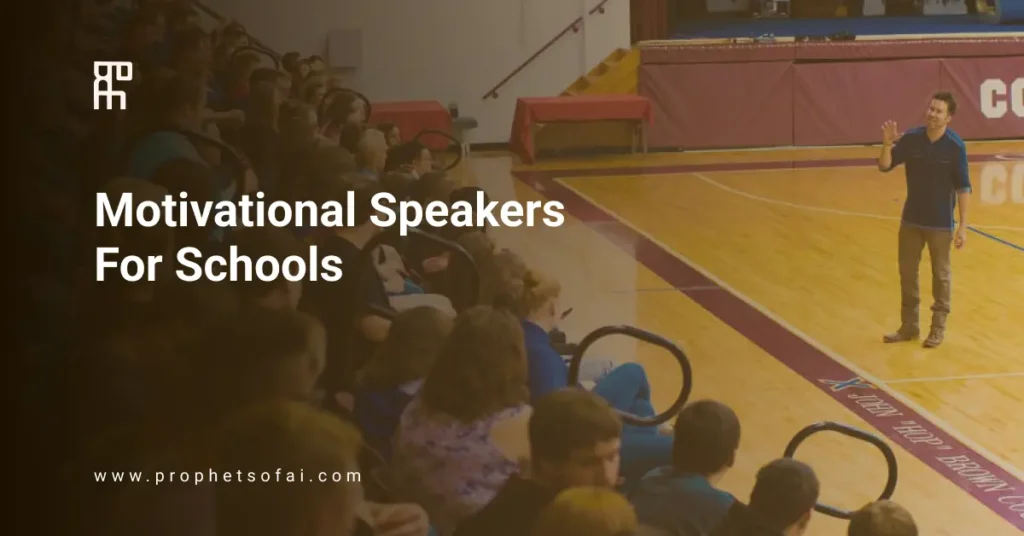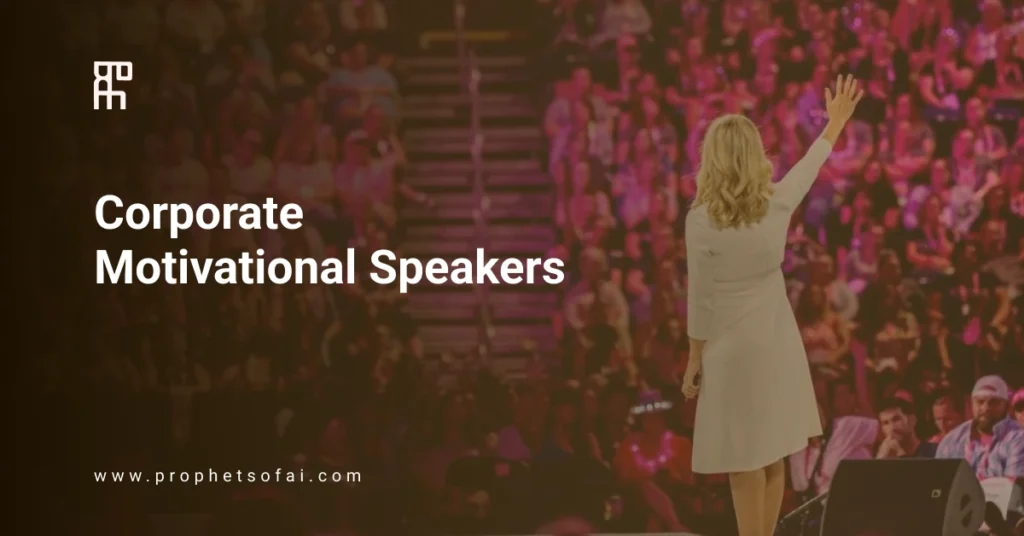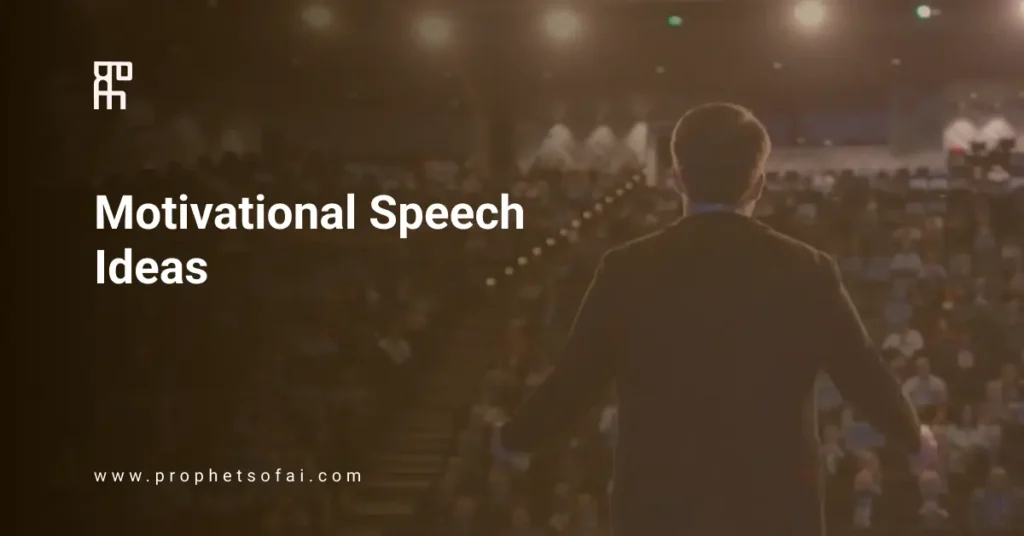You’re standing backstage, heart pounding, notes in hand—but something feels off. Your speech is well-rehearsed, your delivery practiced, yet you’re not sure if your topic will truly connect. Here’s the truth: the best delivery in the world can’t save a weak speech idea, but a powerful topic can carry even a nervous speaker to success. Choosing the right motivational speech idea isn’t about finding something that sounds impressive—it’s about identifying a message that resonates deeply with your specific audience and moves them to action. Whether you’re speaking to corporate teams, students, or personal development audiences, the right topic creates that electric moment when people lean forward, nod along, and think “this is exactly what I needed to hear.” This guide provides proven speech ideas organized by audience type, shows you what makes topics truly motivational, and teaches you how to make even common themes feel fresh and original. Let’s start by understanding the essential elements that transform a speech topic from forgettable to unforgettable, then explore our comprehensive guide on how to write a motivational speech.
What Makes a Speech Idea Motivational?
Not every topic inspires action. The difference between speeches people forget and speeches that change lives comes down to four essential qualities.
Relatability: Your audience must see themselves in your message. Abstract concepts about “success” or “excellence” fall flat unless grounded in experiences your listeners recognize. When they think “that’s exactly how I feel,” you’ve achieved relatability.
Emotional resonance: Facts inform, but emotions inspire. The best motivational speech ideas tap into universal feelings—fear, hope, frustration, joy, determination. People remember how you made them feel long after they forget what you said.
Actionability: Motivation without direction creates frustration. Effective speech ideas include clear, specific takeaways people can implement immediately. “Believe in yourself” is vague; “Write down three strengths you’ve demonstrated this week” is actionable.
Authenticity: Audiences detect manufactured inspiration instantly. The most powerful speech ideas come from genuine experience and belief. Your conviction sells the message more than your polish.
When these four elements combine, you create speeches that don’t just entertain—they transform. Want to see these principles in action? Check out examples of motivational speech success.
Motivational Speech Ideas by Audience
The right topic depends entirely on who’s listening. Here are proven speech ideas organized by context.
For Business & Corporate Audiences
- “Embracing Change as Opportunity” Address the resistance to change that paralyzes organizations. Share stories of companies that adapted versus those that didn’t. Provide frameworks for navigating uncertainty with confidence rather than fear.
- “The Power of Resilience in Leadership” Explore how leaders bounce back from failures and setbacks. Use real business comeback stories. Give teams practical resilience-building techniques they can implement immediately.
- “Innovation Starts with ‘What If?'” Challenge conventional thinking that stifles creativity. Discuss creating cultures of experimentation. Share AI and technology transformation examples that illustrate breakthrough thinking.
- “Purpose-Driven Work: Beyond the Paycheck” Help employees find meaning in daily tasks. Connect company mission to personal values. Show data on how purposeful work improves performance and satisfaction.
- “Failure Is Feedback, Not Final” Reframe setbacks as essential learning. Reference Silicon Valley’s “fail fast” mentality. Share personal failure-to-success stories that normalize the journey.
For Students & Educational Settings
- “Your Potential Is Bigger Than Your GPA” Validate students who don’t fit traditional academic molds. Highlight multiple paths to success. Share stories of unconventional achievers who found their way.
- “Overcoming Self-Doubt and Imposter Syndrome” Normalize feelings of inadequacy that plague high-achievers. Provide practical exercises for building genuine confidence. Share vulnerability about your own self-doubt journey.
- “The Gap Year That Changed Everything” Give permission for alternative paths and exploration. Emphasize learning outside classroom walls. Tell real stories of discovery through unconventional routes.
- “Social Media vs. Real Life: Finding Authenticity” Address comparison culture’s mental health impact. Discuss digital detox benefits. Provide strategies for building genuine connections in a filtered world.
- “Your First Job Won’t Define Your Career” Relieve pressure around perfect career launches. Show how skills transfer across industries. Encourage long-term thinking over immediate perfection.
For Personal Development Events
- “Rewriting Your Life Story” Empower audiences to reject limiting narratives from their past. Provide frameworks for choosing new stories. Share transformation testimonials that prove change is possible.
- “The Courage to Start Over” Inspire mid-life reinvention and major life transitions. Address the fear of leaving toxic situations. Celebrate “life 2.0” stories with practical starting points.
- “Gratitude as a Superpower” Present the science behind appreciation and perspective. Teach daily gratitude practices. Show how thankfulness shifts entire life trajectories.
- “Living Intentionally in a Distracted World” Help audiences say no to create space for meaningful yes. Introduce digital minimalism concepts. Provide priority alignment exercises.
- “Your Mess Becomes Your Message” Show how personal pain can help others. Celebrate vulnerability as strength. Inspire purpose through adversity with real examples.
Universal Speech Themes That Always Work
Some themes transcend specific audiences and resonate universally across demographics and settings.
Overcoming adversity and building resilience: Share personal struggle stories that demonstrate the victim-to-victor mindset shift. Provide concrete resilience-building techniques audiences can practice.
Pursuing dreams against all odds: Inspire with stories of breaking through barriers and defying naysayers. Show how persistence pays off with real examples that prove impossible is just an opinion.
The transformative power of belief: Explore self-belief versus self-doubt dynamics. Demonstrate how mindset shifts change everything through before-and-after stories.
Taking action despite fear: Emphasize that courage isn’t the absence of fear—it’s action in spite of it. Encourage starting before feeling ready and prioritizing momentum over perfection.
Living with purpose and meaning: Help audiences find their “why” through legacy thinking. Show how making life count creates fulfillment beyond achievement.
The ripple effect of individual actions: Demonstrate how small actions create big impact. Inspire community connection and being the change you wish to see.
For more topic inspiration, explore our guide on motivational speaker topics.
How to Develop Your Speech Idea
Having a topic is just the starting point. Here’s how to develop it into a compelling speech:
- Know your audience deeply: Research demographics, challenges, and aspirations. Ask: What keeps them up at night? What transformation do they need?
- Choose one core message: Select a single transformation you want to create. Apply the “if they remember nothing else” test—what’s the one takeaway that matters most?
- Find your proof points: Gather personal stories that illustrate your message. Include data or research that supports it. Use examples your specific audience can relate to.
- Structure for impact: Open with a hook that grabs attention. Introduce the problem or challenge. Share the journey or solution. End with a clear call to action.
- Add emotional moments strategically: Use vulnerability to create connection. Place stories where they’ll have maximum impact. Balance inspiration with practical information.
Making Common Topics Feel Fresh
Overused topics can still inspire if you add originality.
Reframe tired concepts:
- Instead of “Never give up” → Try “Knowing when to pivot vs. when to persist”
- Instead of “Follow your passion” → Try “Build skills that create passion”
- Instead of “Believe in yourself” → Try “The science behind self-efficacy”
Techniques for originality: Use unexpected personal stories nobody’s heard. Challenge conventional wisdom respectfully. Incorporate current trends like AI, remote work, or mental health awareness. Add humor to serious topics. Use unique metaphors and analogies. Blend disciplines—sports with business, art with leadership.
Your unique perspective is what makes common topics fresh. Nobody has lived your exact journey.
For more inspiration, check out our collection of inspirational speech ideas.
Common Mistakes to Avoid
Even great topics fail when executed poorly. Avoid these pitfalls:
- Cramming too many ideas: One powerful message beats five mediocre ones. Stay focused.
- Preaching without stories: Abstract concepts need concrete examples to stick.
- Copying famous speeches: Draw inspiration, but never imitate. Authenticity wins.
- Ignoring audience needs: Generic speeches land flat—customize for your listeners.
- No clear call to action: Tell people exactly what to do with their inspiration.
Conclusion
Great motivational speech ideas combine relatability, emotional resonance, and clear action steps. Whether addressing corporate teams, students, or personal development audiences, start with their needs rather than what you want to say. Make common topics fresh through your unique perspective and authentic experience. Test your ideas in smaller settings, refine based on feedback, and deliver with conviction.
Ready to bring powerful motivation to your event? Explore Prophets of AI’s roster of expert motivational speakers who’ve mastered the art of inspiring action.





